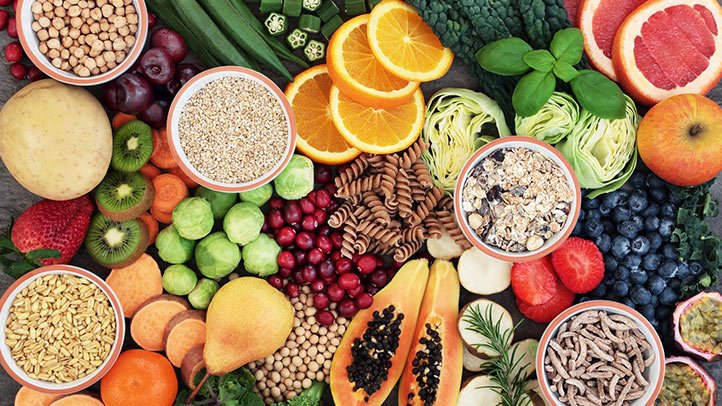
05 Nov A diet for pelvic health
The term diet generally refers to the kinds of food that an individual habitually eats. This is not necessarily for the purpose of weight loss, as it is now more commonly associated.
A restriction applied to the types of foods eaten can also be for medical-related or general health and wellbeing reasons. Did you know there is such a diet that can benefit the health of your pelvic floor region? Following is some information on the “do’s” and “don’ts” for pelvic floor friendly food consumption.
Getting the “don’ts” out of the way
Anything in excess can be bad for our health, so these foods, or ingredients, don’t necessarily need to be banned from your diet – just limited. The following can tend to cause digestive problems that may lead to the overuse of the bladder. Overactivity in any area of the pelvic floor, including the bladder, can result in the entire group of muscles being overworked and consequently weakened.
With this in mind, the pelvic floor region would benefit from restricting the consumption of the following:
* Caffeinated beverages – act as a diuretic and bladder irritant, meaning that they cause an increased production of urine. This results in overuse and sensitivity in the bladder.
* Alcohol – is also a diuretic and bladder irritant. On top of this, it accelerates the rate of water gathered by the kidneys, causing the bladder to empty more frequently.
* Carbonated beverages (fizzy drinks) – contribute to an overactive bladder as the bubbles tend to irritate the bladder. They also commonly contain other bladder irritants, such as caffeine and artificial sweeteners.
* Highly acidic foods and drinks – such as tomato, citrus fruits, fruit juices, olives, processed grains and baked goods (white bread, pasta, pastries) and cheese (hard and soft). The high acidity irritates the bladder lining.
* Spicy foods – the heat that burns in your mouth can continue to burn when it reaches your bladder – irritating the bladder lining.
* Artificial sweeteners – irritate and worsen the symptoms of an overactive bladder.
Again, you don’t have to ban these foods and drinks, just reduce your intake, or swap out items. Try decaffeinated coffee, caffeine-free tea, and water-down your juice (this will also help to reduce your sugar intake!).
Pro-pelvic floor diet
The following are a guide of things that should be included daily in a pelvic floor promoting diet, not things that should be consumed exclusively. They not only avoid causing irritation to the bladder, but will also naturally regulate digestive function, helping to benefit overall pelvic floor strength.
* Unadulterated water – on its own, pure water helps to hydrate the body as well as flushing out toxins, aiding with digestion and generally assisting the body to function optimally.
* Low acidic foods and drinks – such as banana, apricots, melons, coconut, fresh fish, carrots, pumpkin, spinach, green beans, brazil nuts, walnuts, sunflower seeds, linseeds and rye bread. These foods will not cause irritation to the pelvic floor, plus they provide important nutritional value to the diet.
* Omega-3 fatty acids – especially when consumed through fish, naturally decreases inflammation, helping to reduce irritations caused by other foods or drinks.
* Herbal or caffeine-free teas – provide necessary hydration and nutrient value, without the undesirable diuretic or bladder irritating effects of other drinks.
A well-balanced diet is always the most beneficial for overall health and wellbeing – so try to include more of the foods and drinks that have a positive effect on pelvic floor health, and moderate your intake of the rest.
For further advice and assistance on creating the best circumstances for the health of your pelvic region, contact Western Women’s and Men’s Health in Hoppers Crossing on (03) 8001 2044, and make an appointment with one of our highly experienced Physiotherapists.

No Comments